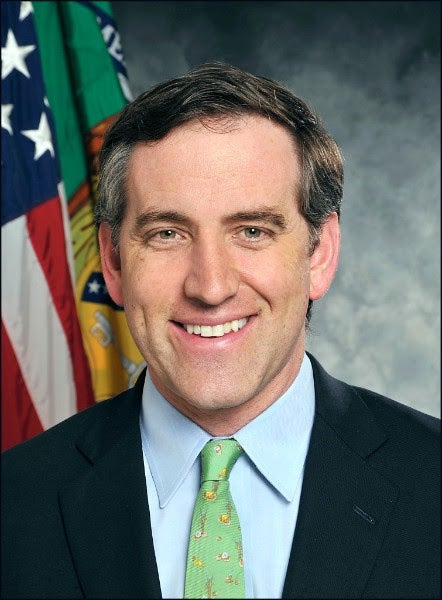Toward a New Capitalism
This nation was built on a uniquely American bargain that anyone willing to work hard and play by the rules should have a chance to go as far as their ability would take them. Americans committed their hard work and loyalty, and could count on rising wages, skills training, and economic security in return. This bargain recognized that work is not just a living, but that it gives structure, dignity, and purpose to our lives; and that those who do the work are not a cost of doing business but the wellspring of productivity, creativity, and success.
Now, however, the great American bargain is at risk, and so is the middle class it built. While a surge of technology and globalization has made our economy more dynamic, efficient, and competitive, it has raised complex questions about what the economic future may hold for workers. Contracting, outsourcing, and automation can reduce business costs, but they can also have adverse impacts on workers: wages have stagnated, benefits are less generous, and workforce training investments are falling. Policymakers have often responded to these trends by using regulations to protect employees, but recent trends have shown that this approach can have the adverse effect of encouraging businesses to rely more heavily on contract and contingent work, which in turn provide even less security to workers.
Read the Economic Narrative |
Read the Policy Agenda |
The purpose of the Aspen Institute Initiative on the Future of Work is to propose a new course – a way to upgrade America’s economic reward structure to keep pace with the shifting realities of the 21st century. As we did in the last century, we must come together to forge a new economic model that fuels innovation, rewards work, and promises a brighter future for businesses and workers alike, for the sake of our economy and democracy.
The foundations of this new economic model lead us to some basic principles. We need new incentives and new ways of doing business that reward workers, entrepreneurs, and investors together. Workers deserve a say and a stake in the companies they help build, and a chance to get better at the hard work they do. Businesses deserve the freedom to take the long view and the confidence that when their workers do well, their enterprises will too. Society deserves civic and business leaders who will seek to make innovation a force for good and steer the future of work toward widespread growth and prosperity, and not overly concentrated returns.
We rely on two main approaches.
Make work a mutual enterprise by realigning incentives for workers and businesses.
- Tax incentives to give businesses a greater stake in their workers, and worker ownership and worker voice options to give workers a greater stake in the businesses they work for.
- Reforms to give businesses the freedom to invest in the long-term development of their workers, rather than forcing them to focus on short-run profits.
- Better corporate disclosure and use of data to help match consumers, workers, and investors that care about worker-friendly practices with like-minded businesses.
Empower workers by making them less reliant on businesses for benefits, security, and upward mobility. These policies options include:
- Make benefits and protections more portable, empowering workers to be less reliant on their employment classification for economic security.
- Create a more standardized and skills-based credentialing system so that workers have more control over their training and businesses can hire based on proven skills.
- Reform unemployment insurance to make it easier for workers to relocate to find work and opportunity.
The future of work is too uncertain and the pressures of innovation and competition too fierce to expect companies to solve all these problems on their own. Likewise, the 21st century is too complex and the gears of bureaucracy too slow to expect government to solve it all, either. The same entrepreneurial spirit of invention that made American capitalism the engine of economic and social mobility must be brought to envisioning the next stage of capitalism to ensure every American has the chance to get ahead again.
We hope you will join us in rising to this challenge.
